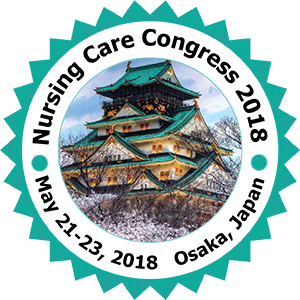Lam Chi Chung
Tung Wah College, Hongkong
Title: Study on stressors, coping skills and general well-being of Hong Kong final year nursing students
Biography
Biography: Lam Chi Chung
Abstract
Background. Nursing is considered as a stressful occupation among the health care profession. Nursing students who share similar patient care activities of the qualified nurses face not only stressors in the clinical environment during their practice but also experience various academic and personal stressors during their academic study. In particular, final year nursing students may encounter additional stressful events due to the requirements of clinical skills assessment and final year project. High level of stress may have detrimental effects on health and general well-being. There has been little evidence on the stressors and the general well-being of the final year nursing students in Hong Kong. This study attempted to explore the sources of stress and the general well-being among final year nursing students in Hong Kong, and to determine how they cope with stressful events.
Method. A cross-sectional survey using self-reported questionnaires was conducted to elicit responses from 293 final year nursing students in January 2018. The sources of stressors, coping skills and general well-being were evaluated by Stressors in Nursing Students Scale Chinese version (SINS-C), Brief Coping Behavior Inventory and General Health Questionnaire (GHQ) respectively.
Findings. Results showed that educational (mean, 3.12; SD, 0.49) and clinical (mean, 3.10; SD, 0.52) stressors are higher than other stressors in the finance (mean, 2.98; SD, 0.69) and confidence (mean, 2.97; SD, 0.51) factors. For coping behavior, support-seeking method is the commonly used to cope with stressful events. This study showed that 85.7% of the subjects were under psychological distress (mean, 15.35/36; SD, 3.76).
Conclusion. This cross-sectional study was carried out to assess the stressors, coping style and general well-being among final year nursing students in Hong Kong. The result showed that nursing students perceived education and clinical factors are the stressors during their final year of study and they experienced a state of psychological distress. Among various type of coping styles, most of the students adopted support seeking method to cope with stress. The findings can illuminate nurse educators in reviewing the curriculum and devising a better strategy to reduce nursing students’ stress when they seek support from educators and academic advisors.

